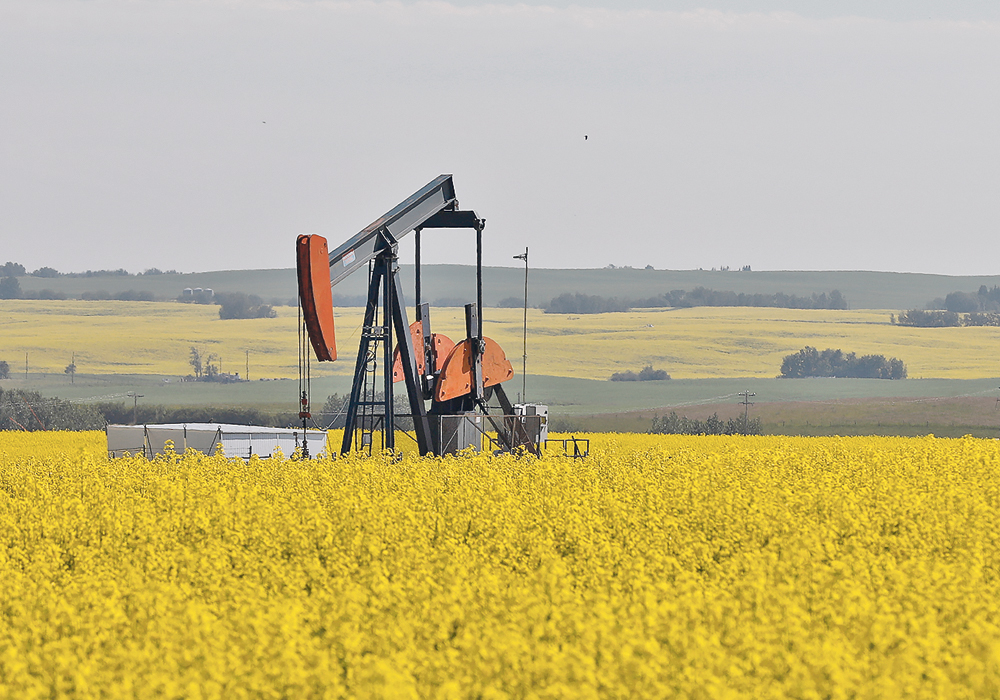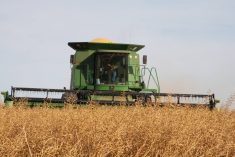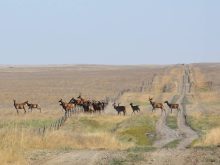Alberta landowner group suggests shutting off power and valves to well sites if energy companies fail to pay lease fees
A suggestion that Alberta farmers safely shut off electricity and close the valves on oil and gas leases if fees aren’t paid has gained attention, criticism and further response from the Action Surface Rights group that initially launched the idea Jan. 23.
Attracting attention to a pressing problem was largely the point, said Ron Huvenaars, chair of ASR, which issued the suggestion.
“Mostly it’s an attention getter, trying to draw attention to what’s going on in the rural areas,” Huvenaars said Jan. 30.
Some Alberta energy companies are not paying their lease fees to farmers for energy sites on private land, nor are they paying municipal property taxes in some cases. The problem has worsened with the energy industry in doldrums, resulting in lower returns for companies, bankruptcies and well abandonment.
Read Also

Crop quality looks good this year across Prairies
Crop quality looks real good this year, with the exception of durum.
Most of the province’s approximately 400,000 wells are on privately owned farms and ranches and the owners of those wells are required to pay annual compensation to landowners for crop losses and other impacts on the property.
Landowners can appeal to the Surface Rights Board, a provincial government entity, to obtain lease payments, but according to the ASR group, the SRB “has started arbitrarily reducing the annual well site compensation payments. In many cases cutting them by half or more,” it said in a news release suggesting farmers take direct action.
“And now many companies are following the government’s lead. Energy companies with active, producing wells have just stopped paying or sent cheques for significantly reduced compensation even though the companies are continuing to produce oil and gas from these wells,” the ASR said.
As a response, ASR member and Taber-area farmer Daryl Bennett said farmers should cut off power and close valves on sites until delinquent companies pay the money they owe.
That idea has raised questions about safety and legality.
Alberta’s Farmers’ Advocate Office responded with an advisory warning landowners against the action.
“It is very important that rural Albertans understand that following this reckless advice can pose risks to personal and public safety, create environmental hazards and could result in exposure to legal claims for damages and criminal charges,” the FAO said.
“Interfering with any oil and gas infrastructure or that of an electrical distribution utility could create public safety risks including spills of liquids and gases, explosions, fires and electrocution.”
The Canadian Association of Petroleum Producers also disparaged the idea of farmers shutting down wells, citing safety concerns.
“Shutting in wells without the proper care and guidance of oil and natural gas operators poses significant safety concerns for the individuals involved and the public,” said Brad Herald, vice-president of CAPP’s western Canadian operations, in an emailed response to queries.
The ASR responded by saying criticisms that focus on safety are hypocritical.
“On the one hand, when these wells are forced onto our farms, the energy regulator reassures us by saying the wells are equipped with safety equipment to deal with power outages and automatically shut down if there is a problem with the well,” said Bennett.
“But on the other hand when we decide to take action, the same regulator says we can’t because there are safety risks.”
The ASR said there are “tens of thousands” of delinquent well sites that companies have left in unsafe condition on private land.
Huvenaars said in a news release that there is a double standard when it comes to well safety and landowner concerns.
“It is concerning and frustrating that the Alberta Energy Regulator, the industry and the provincial government are more than willing to quickly threaten landowners with legal action and warn of the potential safety threat of landowners acting to protect their property, but much less eager to take action against certain energy companies who have been breaking the law, defaulting on their surface leases, not paying their taxes and leaving these sites in dangerous conditions for many years.”
On the property tax front, Rural Municipalities of Alberta recently surveyed its members and found they are owed approximately $173 million in unpaid taxes from the oil and gas industry. That affects the ability of rural municipalities to provide services and infrastructure and could result in property tax increases to cover the shortfall.
The RMA said in a position statement that the current methods available for pursuing unpaid property taxes from energy companies are “prohibitive for municipalities to pursue” and more effective ways are needed.
A year ago, the province allowed a 35 percent reduction in energy companies’ education portion of property taxes and credited rural municipalities for it. That credit is not likely to be forthcoming this year as the government takes steps to reduce expenses and address the provincial debt.
“Farmers and ranchers have been the biggest supporters of the energy industry,” said Huvenaars. “We all realize how important the industry is, but farmers are increasingly being taken advantage of by the provincial government and the energy industry. We’ve been having to put up with all of the problems with these well sites and farmers have had enough.”
In addition to shutting off power and valves, the ASR suggested that landowners also object to any new drilling activity on their properties, use the province’s new Trespass Act to ensure industry equipment is free of weeds and crop disease and express their concerns to their MLAs.
The group is encouraging landowners with well sites on their property to review leases and serve a default notice on companies that have not made lease payments or paid property taxes owing.
“According to the legal wording of the leases, the company has 30 days to pay up and clear up their taxes. If the companies don’t, the lease is in default,” Bennett said.
He added that several farmers plan on getting court orders to terminate leases for well sites.
“That would mean that the company will have to turn off its well and stop producing. It also means that the company will have to go to the Surface Rights Board and pay to get a Right of Entry Order to get back onto the land,” the ASR said.
Herald acknowledged challenges in the energy sector have created issues for many.
“Low commodity prices and a difficult environment for our industry have led to many companies experiencing financial difficulty. No business owner or operator defers financial obligations lightly. This is a sign of the stress that many in our business, and Albertans across the province, are feeling every day,” said Herald.
















